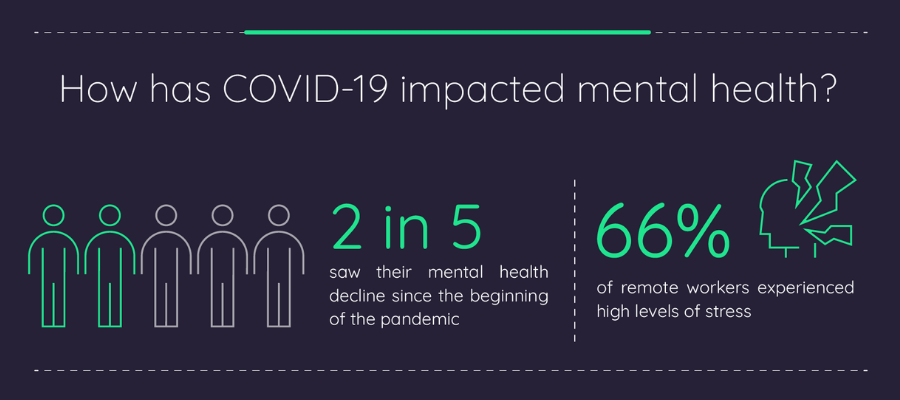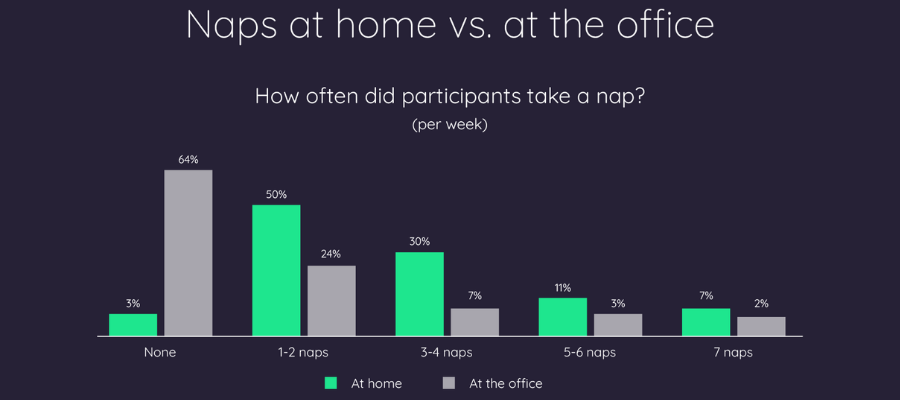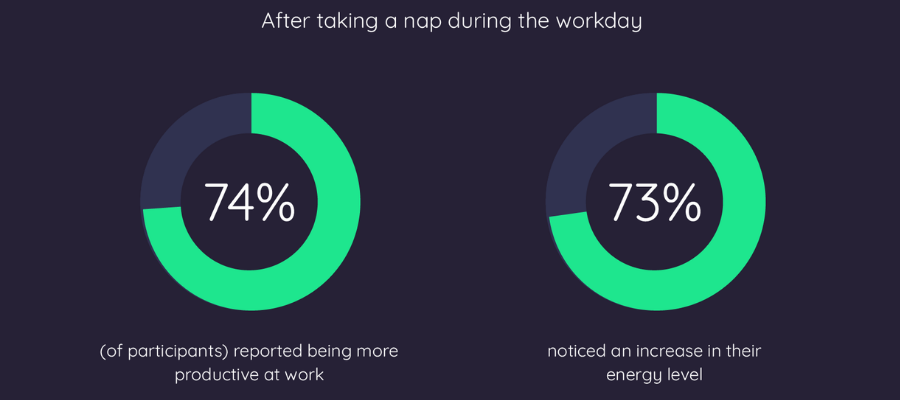Employees nap more when working from home – and that’s a good thing.
In 2021, Restworks conducted a survey of more than 2,000 people working from home during numerous lockdowns around the world. Our purpose was to better understand how the Covid-19 pandemic has affected the relationship between work and sleep. One of the things our data revealed was a dramatic increase in napping during working hours. Here’s why:
The challenges of remote working

During the height of the pandemic, 77% of office employees worked remotely. This has had a drastic effect on health, sleep and overall well being.
Remote work presents multiple challenges: It blurs the lines between work hours and personal time, it makes communication more difficult, and resulting miscommunication can cause rising tensions between colleagues and departments. Families have been particularly challenged during the lockdown, with parents juggling their professional workload with caring for children who are unable to attend daycare and/or overseeing remote learning in school aged children.
Microsoft has documented a considerable increase in overtime, as well as a large increase in mental exhaustion due to information overload. Sleep has also suffered, with 42% of remote workers reporting that they don’t get enough sleep at night.
Newly found nap habits

With 42% remote workers being sleep deprived, it is hardly surprising that employees nap more when working from home. Our data indicates that 85% of people nap more when working from home than when they commute to the office.
Increased workload and sleep deprivation may partially account for this – along with the fact that a couch or bed is close by, which is rarely the case at the office. However, the real reason why people nap more when working from home than when at the office has to do with biology rather than commodities. In fact, if given the opportunity to nap in the afternoon, most people would.
Napping is part of our DNA
Napping is as old as time itself, writes Roger E. Kirch, a renowned sleep researcher. What this means is that the propensity for an afternoon nap is really an integrated part of our biology, well documented by science. In fact, the 2017 Nobel Prize of Medicine was awarded to three researchers for their work that revealed a number of “clock genes” within our bodies.
These genes explain why virtually all people experience an energy dip in the afternoon. When a person takes a nap while working from home, they are simply accommodating the cues they are getting from their body to take a rest. This is natural and healthy; it is a far better choice than reaching for another coffee, soda or sugary snack, which can lead to a sudden energy crash in the early evening. Overall, napping has many positive effects which benefits employers as well.
How power naps can benefit employers

It is well-documented that power naps increase health and wellbeing. Survey participants who began napping during the pandemic overwhelmingly have positive things to say about the power of napping:
- 74% felt more productive after a nap
- 73% felt more energetic
Given these statistics, it is little wonder that people would like to keep their newly found nap habits once they have returned to the office.
71% of employees believe that employers should encourage napping at work. This is also the recommendation of the Rand Corporation, who estimates that sleep deprivation costs businesses billions of dollars each year in lost productivity and sick days.
Backed by these survey results and the proven benefits of a short daytime nap, we believe that it is in employers’ interest to encourage and support afternoon power naps with proper rest facilities such as sleeping pods.


